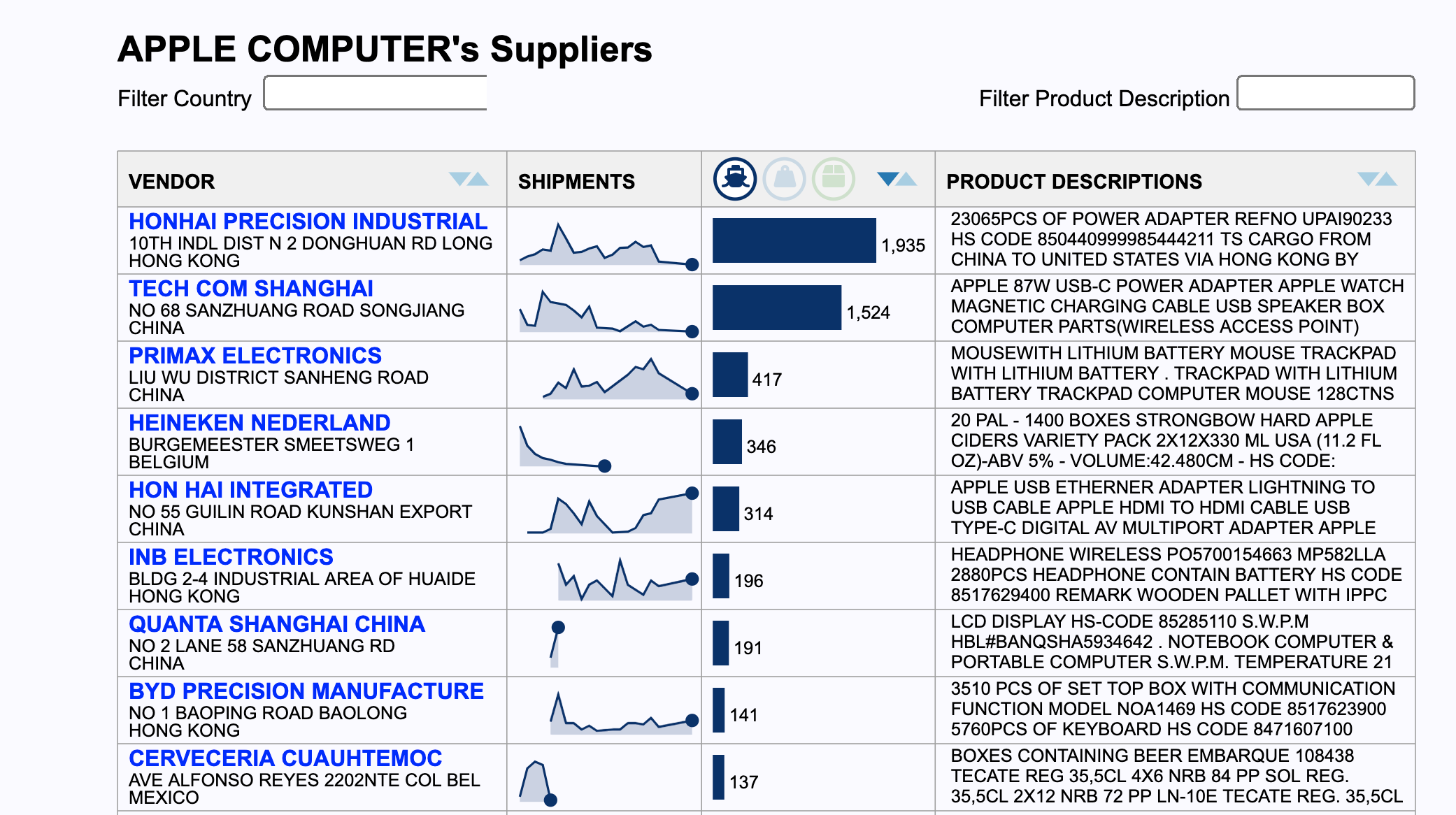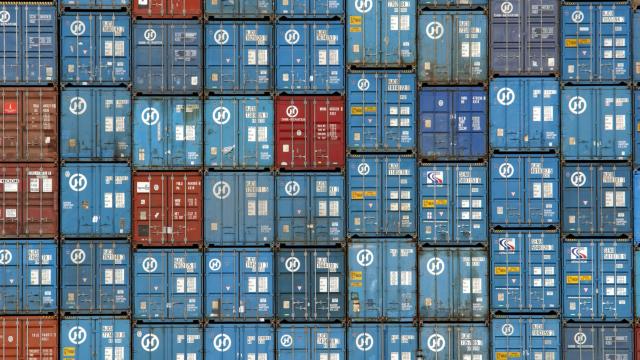David Applegate runs a site called WrestlingMart. It’s an ecommerce store dedicated to, well, wrestling. In his five years in business, he always wanted to know where his suppliers were getting the gear he sold, including singlets, shoes, and mat tape.
Instead of hunting through hundreds of records by hand, however, he figured out a better way. He built something called ImportYeti. The site searches through bills of lading, the documents that suppliers attach to shipments to their customers, to tell you where a retailer is getting its goods.
The biggest problem in building a product is sourcing. Many big brands source from the same company, and if you’re a smaller company or startup trying to break into a crowded market — yoga mats, for example — knowing where your competitors source their products from can be game-changing. If you can buy the same products in bulk for the same cheap prices, you have a chance to be competitive and break into the market.
Most brands don’t manufacture their own products, and they often outsource mass production to companies in Asia. The information ImportYeti compiles lets competitors know where to look if they want to purchase similar products in bulk.
“I focus on answering a singular question: ‘How do I find the right supplier to create my product overseas?,’” Applegate said. “I approach this two ways. I allow you to find the suppliers that are used by reputable companies and I allow you to vet suppliers by understanding whether or not they actually move volume in the product you’re interested in.”

The data pages are a wealth of interesting information. From the aforementioned yoga mat suppliers we learn that Manduka, as advertised in its marketing, imports from Germany, among other places, while Gaiam sources primarily from Asia. Meanwhile, a search for Apple shows us the tech behemoth imports from Hon Hai, Quanta, and companies associated with Foxconn.
One odd thing is that ImportYeti seems to think that Apple is importing Heineken and Estrella beer. I asked Applegate about the mixup, and he suspects the naming conventions used in the bills of lading are confusing the system.
“We are attempting to clean up the data a little bit. For example Apple is under Apple, Apple, Inc, Apple Computer, Apple Computer Inc, Apple Computer C O OHL, etc.,” he said. “There is a chance there is another company named ASA Apple that imported to the same freight forwarding house in New Jersey.”
We reached out to Apple for comment but haven’t heard back.


Applegate, for his part, loves this data. He’s a self-described techie and built the site himself.
“I eat, breathe, and sleep ecommerce,” he said. “I use this data myself to find vendors. I’m fairly technical and due to the covd-19’s brutal effect on my store, I have some extra time on my hands.”
He said there are few sites that offer the same data for a price, and he hopes to keep the whole thing free for as long as he can.
“The system searches over 70 million bills of lading to understand which suppliers to choose based on data rather than than empty claims and seemingly endless options,” he said — even if it sometimes gets things wrong.
